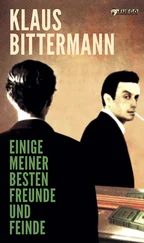Beryl came back to the car by herself. “There,” she said. “They’re going to play with the neighbor children.”
Play with McAllisters? Besides being Catholics, all but the baby were girls.
“They’ve still got their good clothes on,” I said.
“So what? Can’t they have a good time with their good clothes on? I do!”
My parents were taken by surprise as well. Beryl got out and told my father he was to ride in the front seat, for the legroom. She got into the back, with my mother and me. Mr. Florence turned again onto the Bell’s Lake road, and Beryl announced that we were all going to the Wildwood Inn for dinner.
“You’re all dressed up, why not take advantage?” she said. “We dropped the boys off with your neighbors. I thought they might be too young to appreciate it. The neighbors were happy to have them.” She said with a further emphasis that it was to be their treat. Hers and Mr. Florence’s.
“Well, now,” said my father. He probably didn’t have five dollars in his pocket. “Well, now. I wonder do they let the farmers in?”
He made various jokes along this line. In the hotel dining room, which was all in white — white tablecloths, white painted chairs — with sweating glass water pitchers and high, whirring fans, he picked up a table napkin the size of a diaper and spoke to me in a loud whisper, “Can you tell me what to do with this thing? Can I put it on my head to keep the draft off?”
Of course he had eaten in hotel dining rooms before. He knew about table napkins and pie forks. And my mother knew — she wasn’t even a country woman, to begin with. Nevertheless this was a huge event. Not exactly a pleasure — as Beryl must have meant it to be — but a huge, unsettling event. Eating a meal in public, only a few miles from home, eating in a big room full of people you didn’t know, the food served by a stranger, a snippy-looking girl who was probably a college student working at a summer job.
“I’d like the rooster,” my father said. “How long has he been in the pot?” It was only good manners, as he knew it, to joke with people who waited on him.
“Beg your pardon?” the girl said.
“Roast chicken,” said Beryl. “Is that okay for everybody?”
Mr. Florence was looking gloomy. Perhaps he didn’t care for jokes when it was his money that was being spent. Perhaps he had counted on something better than ice water to fill up the glasses.
The waitress put down a dish of celery and olives, and my mother said, “Just a minute while I give thanks.” She bowed her head and said quietly but audibly, “Lord, bless this food to our use, and us to Thy service, for Christ’s sake. Amen.” Refreshed, she sat up straight and passed the dish to me, saying, “Mind the olives. There’s stones in them.”
Beryl was smiling around at the room.
The waitress came back with a basket of rolls.
“Parker House!” Beryl leaned over and breathed in their smell. “Eat them while they’re hot enough to melt the butter!”
Mr. Florence twitched, and peered into the butter dish. “Is that what this is — butter? I thought it was Shirley Temple’s curls.”
His face was hardly less gloomy than before, but it was a joke, and his making it seemed to convey to us something of the very thing that had just been publicly asked for — a blessing.
“When he says something funny,” said Beryl — who often referred to Mr. Florence as “he” even when he was right there — “you notice how he always keeps a straight face? That reminds me of Mama. I mean of our mama, Marietta’s and mine. Daddy, when he made a joke you could see it coming a mile away — he couldn’t keep it off his face — but Mama was another story. She could look so sour. But she could joke on her deathbed. In fact, she did that very thing. Marietta, remember when she was in bed in the front room the spring before she died?”
“I remember she was in bed in that room,” my mother said. “Yes.”
“Well, Daddy came in and she was lying there in her clean nightgown, with the covers off, because the German lady from next door had just been helping her take a wash, and she was still there tidying up the bed. So Daddy wanted to be cheerful, and he said, ‘Spring must be coming. I saw a crow today.’ This must have been in March. And Mama said quick as a shot, ‘Well, you better cover me up then, before it looks in that window and gets any ideas!’ The German lady — Daddy said she just about dropped the basin. Because it was true, Mama was skin and bones; she was dying. But she could joke.”
Mr. Florence said, “Might as well when there’s no use to cry.”
“But she could carry a joke too far, Mama could. One time, one time, she wanted to give Daddy a scare. He was supposed to be interested in some girl that kept coming around to the works. Well, he was a big good-looking man. So Mama said, ‘Well, I’ll just do away with myself, and you can get on with her and see how you like it when I come back and haunt you.’ He told her not to be so stupid, and he went off downtown. And Mama went out to the barn and climbed on a chair and put a rope around her neck. Didn’t she, Marietta? Marietta went looking for her and she found her like that!”
My mother bent her head and put her hands in her lap, almost as if she was getting ready to say another grace.
“Daddy told me all about it, but I can remember anyway. I remember Marietta tearing off down the hill in her nightie, and I guess the German lady saw her go, and she came out and was looking for Mama, and somehow we all ended up in the barn — me too, and some kids I was playing with — and there was Mama up on a chair preparing to give Daddy the fright of his life. She’d sent Marietta after him. And the German lady starts wailing, ‘Oh, missus, come down missus, think of your little kindren ’ — ‘kindren’ is the German for ‘children’ — ‘think of your kindren ,’ and so on. Until it was me standing there — I was just a little squirt, but I was the one noticed that rope. My eyes followed that rope up and up and I saw it was just hanging over the beam, just flung there — it wasn’t tied at all! Marietta hadn’t noticed that, the German lady hadn’t noticed it. But I just spoke up and said, ‘Mama, how are you going to manage to hang yourself without that rope tied around the beam?’”
Mr. Florence said, “That’d be a tough one.”
“I spoiled her game. The German lady made coffee and we went over there and had a few treats, and, Marietta, you couldn’t find Daddy after all, could you? You could hear Marietta howling, coming up the hill, a block away.”
“Natural for her to be upset,” my father said.
“Sure it was. Mama went too far.”
“She meant it,” my mother said. “She meant it more than you give her credit for.”
“She meant to get a rise out of Daddy. That was their whole life together. He always said she was a hard woman to live with, but she had a lot of character. I believe he missed that, with Gladys.”
“I wouldn’t know,” my mother said, in that particularly steady voice with which she always spoke of her father. “What he did say or didn’t say.”
“People are dead now,” said my father. “It isn’t up to us to judge.”
“I know,” said Beryl. “I know Marietta’s always had a different view.”
My mother looked at Mr. Florence and smiled quite easily and radiantly. “I’m sure you don’t know what to make of all these family matters.”
The one time that I visited Beryl, when Beryl was an old woman, all knobby and twisted up with arthritis, Beryl said, “Marietta got all Daddy’s looks. And she never did a thing with herself. Remember her wearing that old navy-blue crêpe dress when we went to the hotel that time? Of course, I know it was probably all she had, but did it have to be all she had? You know, I was scared of her somehow. I couldn’t stay in a room alone with her. But she had outstanding looks.” Trying to remember an occasion when I had noticed my mother’s looks, I thought of the time in the hotel, my mother’s pale-olive skin against the heavy white, coiled hair, her open, handsome face smiling at Mr. Florence — as if he was the one to be forgiven.
Читать дальше












